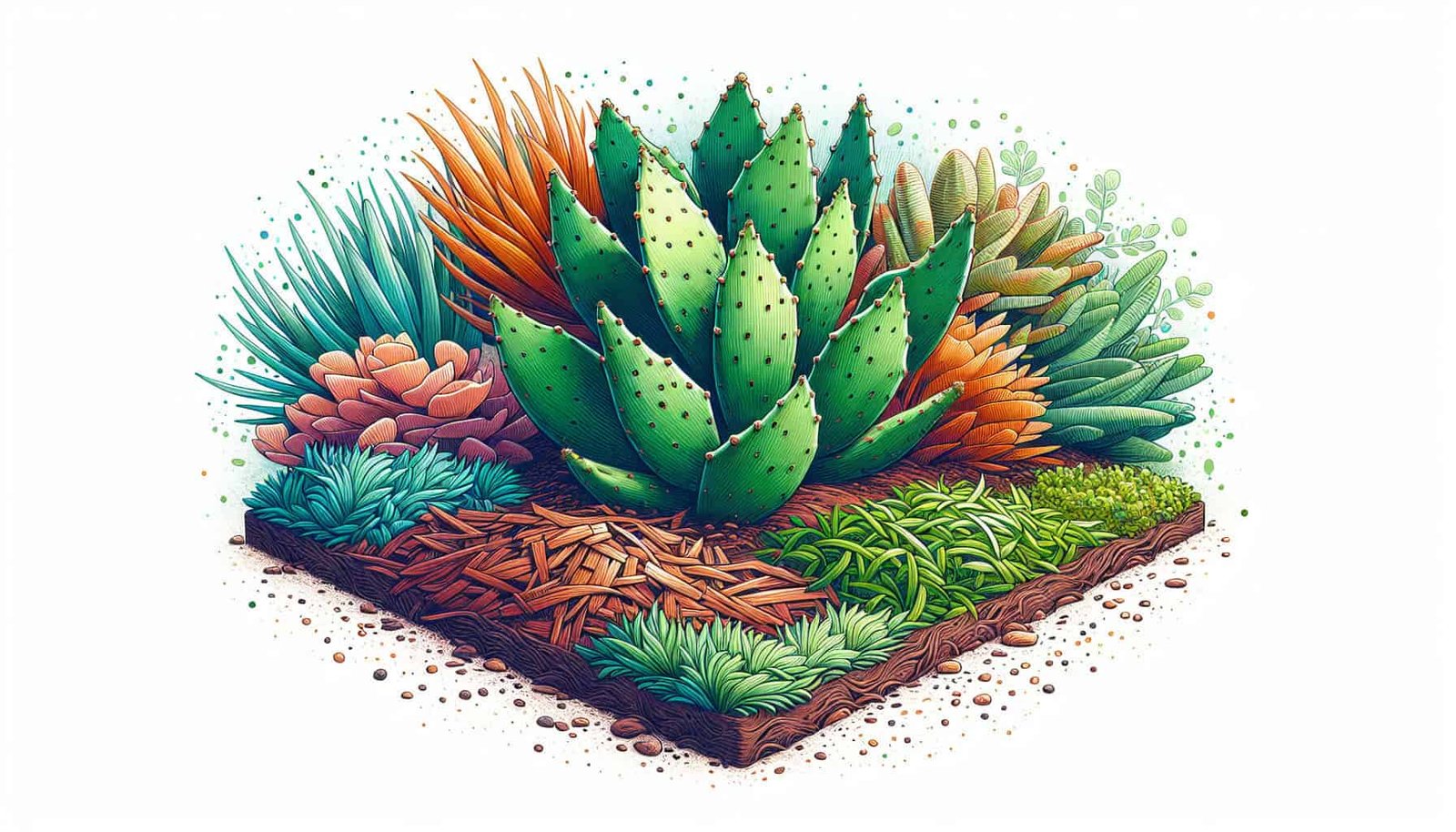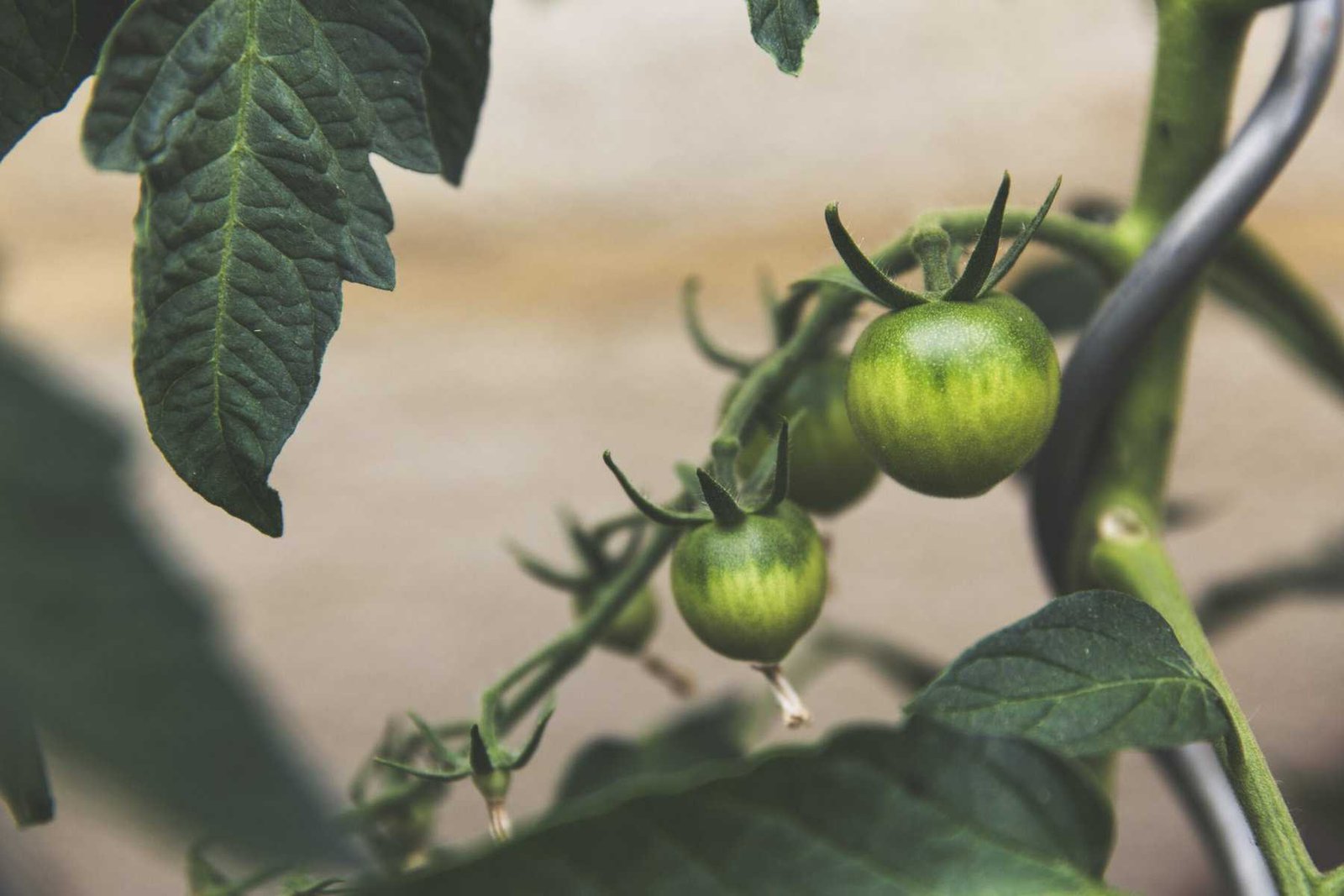If you’re wondering whether organic mulch can help you control weeds around your beloved nopal plants, the answer is a resounding yes! Organic mulch is not only effective in blocking the growth of unwanted weeds, but it also provides numerous benefits to your plants and soil. By inhibiting weed germination and growth, organic mulch creates a barrier that smothers existing weeds and prevents new ones from taking root. Additionally, it helps retain moisture in the soil, regulates soil temperature, and adds valuable nutrients as it decomposes. So, next time you’re looking for an eco-friendly and efficient way to keep your nopal garden weed-free, consider using organic mulch!
Benefits of Using Organic Mulch for Weed Control
Prevents Weed Growth
Using organic mulch can effectively prevent weed growth around Nopal plants. The thick layer of mulch acts as a barrier, preventing sunlight from reaching weed seeds and inhibiting their germination. This means less time and effort spent on manual weed removal, allowing you to focus on the health and growth of your Nopal plants.
Conserves Soil Moisture
Organic mulch acts as a natural insulator, helping to conserve soil moisture. By creating a barrier between the soil and the air, the mulch helps to prevent water evaporation, reducing the need for frequent irrigation. Conserving soil moisture is crucial for the growth and development of Nopal plants, as they thrive in well-drained soil with adequate moisture levels.
Improves Soil Fertility
One of the significant benefits of using organic mulch around Nopal plants is that it helps improve soil fertility. As the mulch breaks down over time, it decomposes and adds organic matter to the soil. This organic matter enriches the soil, providing essential nutrients and promoting beneficial microbial activity. An enriched soil not only enhances the overall health of your Nopal plants but also improves their ability to resist diseases and pests.
Reduces the Need for Chemical Weed Control
By utilizing organic mulch for weed control around Nopal plants, you can significantly reduce or even eliminate the need for chemical weed control methods. Chemical herbicides can have potential harmful effects on both plants and the environment. Choosing organic mulch as a weed control method promotes sustainable gardening practices and minimizes the use of synthetic chemicals in your garden.
Understanding Nopal Plants
Overview of Nopal Plants
Nopal plants, also known as Opuntia or prickly pear cactus, are a type of succulent native to arid regions. They are renowned for their unique appearance, with flat, paddle-shaped stems covered in spines. These plants belong to the Cactaceae family and have been cultivated for thousands of years due to their culinary, medicinal, and ornamental value.
Characteristics of Nopal Plants
Nopal plants possess several characteristics that make them well-suited for various garden settings. They are drought-tolerant, making them ideal for water-scarce regions. These plants can also withstand a wide range of temperatures, from hot desert climates to freezing temperatures. Additionally, Nopal plants have shallow root systems, allowing them to thrive in well-drained soil conditions.
Nopal Growth Requirements
To ensure the healthy growth of Nopal plants, it is crucial to understand their specific growth requirements. These plants prefer full sun exposure, requiring at least six hours of direct sunlight daily. They thrive in well-drained soil with a slightly acidic to neutral pH level. Adequate airflow and good drainage are essential for preventing root rot and other fungal diseases. Understanding these requirements will help you select the right organic mulch and create an optimal environment for your Nopal plants.
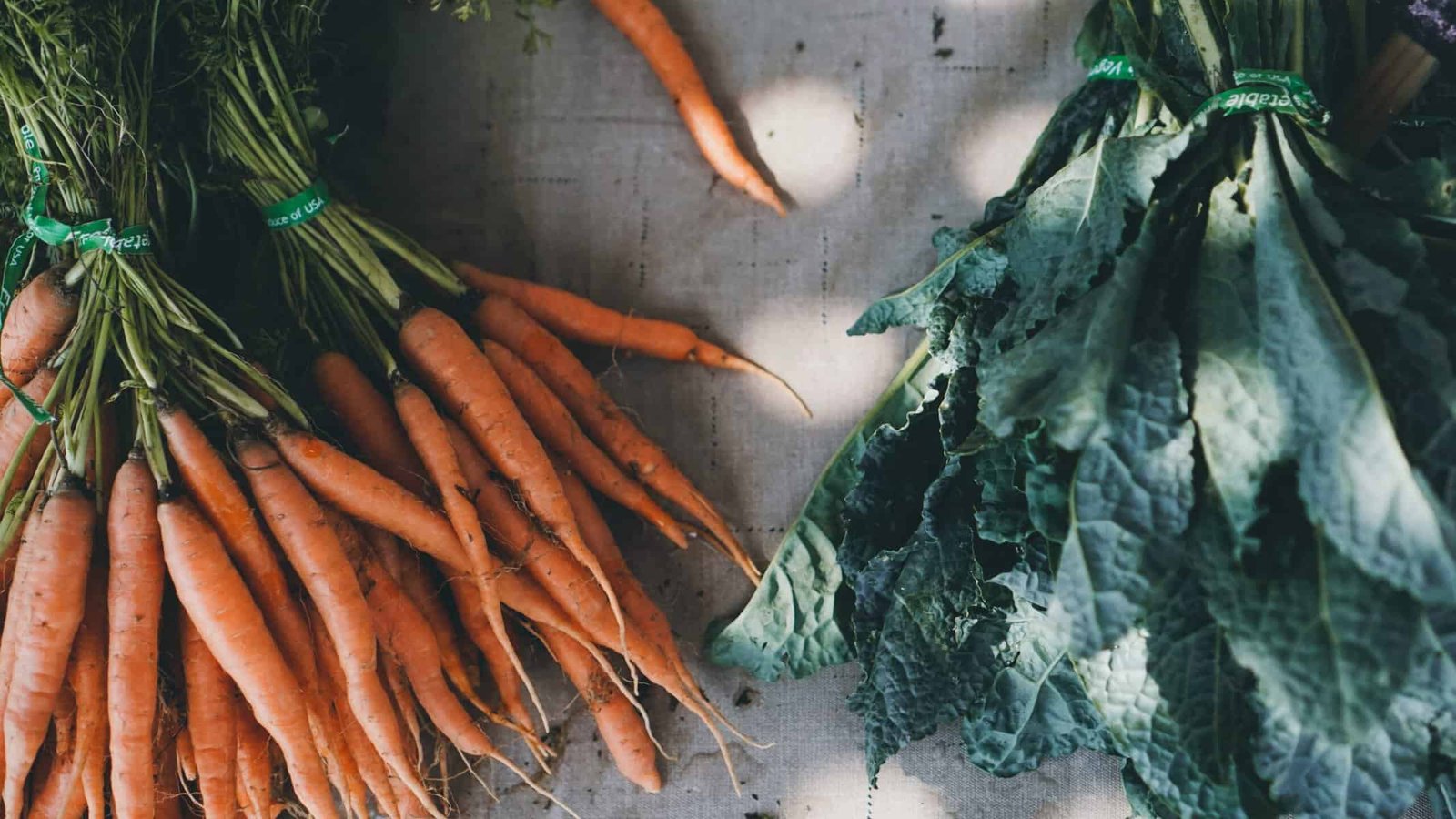
Choosing the Right Type of Organic Mulch
Consider the Nopal Plant’s Habitat
When choosing the right organic mulch for weed control around Nopal plants, it is essential to consider their natural habitat. Nopal plants are native to arid regions with sandy or rocky soil. Therefore, mulch that mimics these conditions, such as gravel or crushed stone, can be an excellent choice. It provides effective weed control while maintaining the ideal soil conditions for your Nopal plants.
Select Mulch That Suppresses Weed Growth
When selecting organic mulch for weed control around Nopal plants, opt for materials that have weed-suppressing properties. Mulches such as straw or hay, wood chips, and shredded leaves are excellent choices. These mulches create a thick barrier that inhibits weed growth by blocking sunlight and preventing weed seeds from germinating. The weed-suppressing qualities of these mulches will help keep your Nopal plants free from competition for water, nutrients, and sunlight.
Ensure Mulch Allows Water Penetration for Nopal Plants
While mulch serves as a weed control measure, it is crucial to select a type of mulch that allows water penetration to the soil. Nopal plants require adequate moisture for healthy growth, and a mulch that hinders water absorption can be detrimental. Mulches like wood chips and shredded leaves provide good water permeability while still offering effective weed control. It is essential to strike a balance between weed suppression and proper water penetration when choosing organic mulch for Nopal plants.
Avoid Mulches That Compete for Nutrients with Nopal Plants
Certain types of organic mulch, such as fresh grass clippings or uncomposted materials, can compete with Nopal plants for nutrients. These mulches require nitrogen for decomposition, which may temporarily deplete the soil of this vital nutrient. To avoid nutrient competition, opt for mature compost or well-decomposed mulches that have balanced nutrient content. These mulches not only suppress weeds but also contribute to the overall fertility of the soil, benefiting your Nopal plants.
Preparing the Area for Mulching
Weed the Area Thoroughly
Before applying organic mulch around Nopal plants, it is crucial to eliminate any existing weeds. Thoroughly weed the area, ensuring that all weed roots are removed to prevent future regrowth. This step is essential to maximize the effectiveness of the mulch in preventing weed growth and to provide a clean and healthy environment for your Nopal plants.
Clear Debris and Rocks
Clearing debris and rocks from the designated area is a crucial preparatory step before mulching. Debris, such as fallen leaves or twigs, can hinder proper mulch application and lead to uneven coverage. Rocks can also affect mulch distribution and make it challenging to create an even layer. Removing these obstacles will ensure a smooth and efficient mulching process.
Level the Ground If Necessary
If the ground in the designated area is uneven or has noticeable slopes, it may be necessary to level it before mulching. This step helps ensure uniform mulch distribution and prevents excessive accumulation or thinning of mulch in certain areas. A level ground surface allows the mulch to serve its purpose effectively, providing weed control and maintaining the optimal growing conditions for your Nopal plants.
Evaluate Soil Conditions
Before applying mulch, take the time to evaluate the soil conditions of the designated area. Ensure that the soil is well-drained and suitable for Nopal plants. Testing the soil pH can also be beneficial, as Nopal plants prefer a slightly acidic to neutral pH. By understanding the soil conditions, you can make informed decisions regarding mulch selection and provide the best possible environment for your Nopal plants.
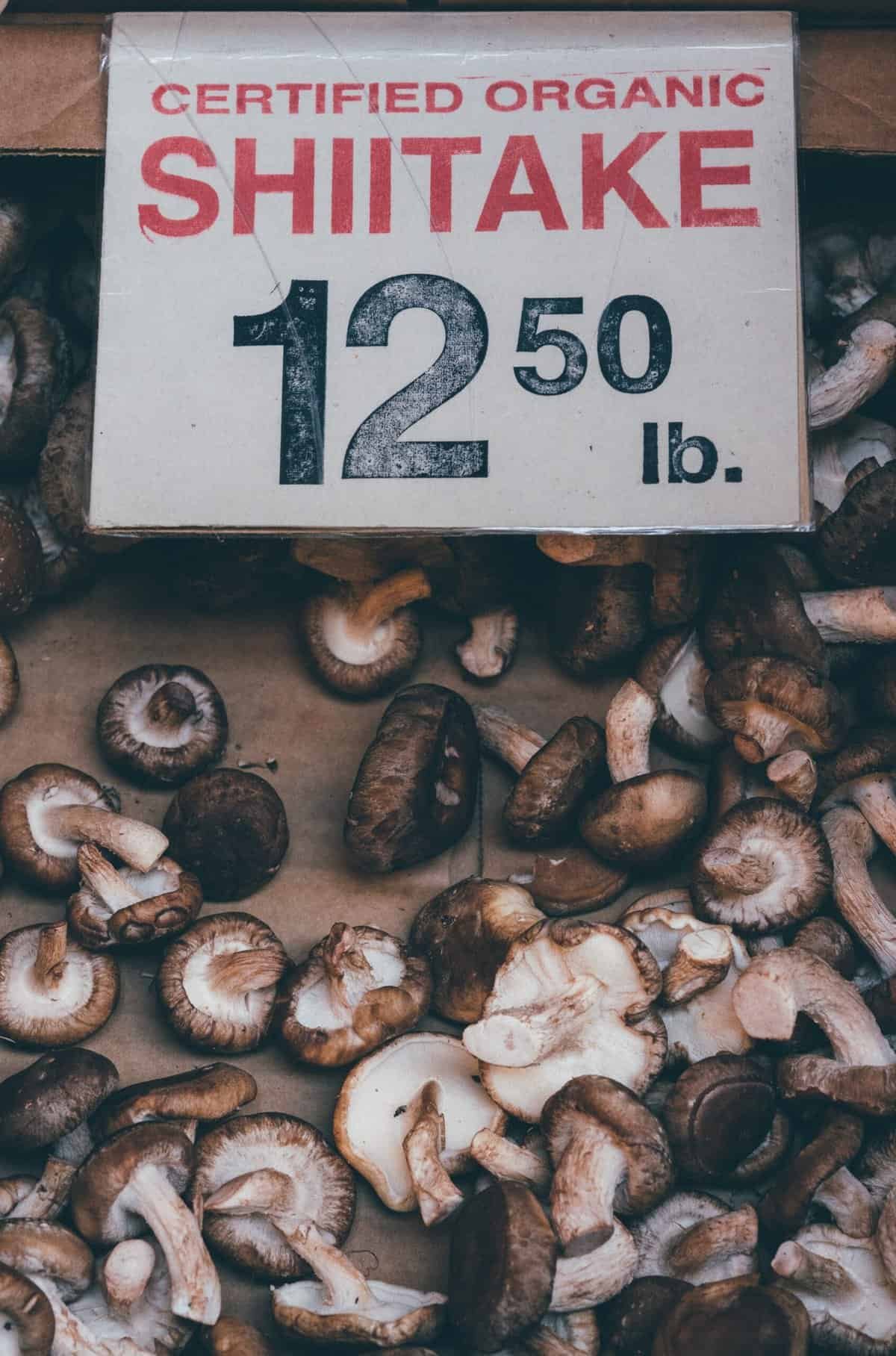
Applying Organic Mulch Around Nopal
Determine the Right Thickness of Mulch
When applying organic mulch around Nopal plants, it is important to determine the appropriate thickness. A layer of organic mulch that is too thin may not effectively suppress weed growth, while an overly thick layer can hinder water penetration and deprive the soil of oxygen. Generally, a 2-4 inch layer of mulch is sufficient for weed control and moisture retention while ensuring optimal growing conditions for your Nopal plants.
Create an Even Layer of Mulch Around the Nopal Plants
To achieve uniform weed control and moisture retention, it is crucial to create an even layer of mulch around the Nopal plants. Start by spreading the mulch evenly and gradually build up the desired thickness. Using a rake or a gardening tool can help distribute the mulch evenly. By creating an even layer, you prevent weed breakthrough and ensure that moisture is retained throughout the designated area.
Keep Mulch Away from the Base of the Plants
To prevent moisture-related issues and potential damage to the Nopal plants, it is important to keep the mulch away from the base of the plants. Direct contact between the mulch and the stem of the plants can lead to rotting or fungal diseases. Create a small gap around the base of the plants, allowing for proper airflow and minimizing the risk of moisture-related problems.
Leave a Gap Around Each Plant for Air Circulation
In addition to keeping the mulch away from the base of the plants, it is beneficial to leave a small gap around each Nopal plant for air circulation. Adequate airflow helps prevent the accumulation of excessive moisture, which can lead to root rot or other fungal diseases. By allowing air circulation, you create a healthier environment for your Nopal plants and promote optimal growth and development.
Best Types of Organic Mulch for Nopal Weed Control
Straw or Hay Mulch
Straw or hay mulch is an excellent choice for Nopal weed control. It provides effective weed suppression while allowing water penetration and maintaining soil moisture. Additionally, straw or hay mulch breaks down slowly, providing a long-lasting weed control solution. It is important to use straw or hay that is free of weed seeds to prevent unintentional introduction of new weeds into the area.
Leaves and Grass Clippings
Leaves and grass clippings are readily available and make for an affordable and sustainable organic mulch option. They provide good weed suppression and help retain soil moisture. These mulches also decompose relatively quickly, adding organic matter to the soil and enhancing its fertility. When using grass clippings, ensure they are free from herbicides or pesticides to avoid any potential harm to Nopal plants.
Wood Chips or Bark Mulch
For a longer-lasting and aesthetically pleasing mulch option, wood chips or bark mulch can be a great choice. They provide excellent weed control, allowing minimal sunlight penetration to inhibit weed germination. Wood chips or bark mulch also retain moisture effectively, benefiting the growth of Nopal plants. However, it is essential to use mature wood chips or bark mulch, as fresh materials can temporarily deplete the soil of nitrogen during decomposition.
Pine Needles
Pine needles, also known as pine straw, are another natural mulch option suitable for Nopal weed control. Pine needles provide effective weed suppression, retain soil moisture, and create an acidic environment, which Nopal plants prefer. They are particularly beneficial in areas with alkaline or neutral soil pH, as they help to maintain the ideal acidic conditions for your Nopal plants.
Compost
Compost is a nutrient-rich organic mulch that offers multiple benefits for Nopal plants. It suppresses weeds, retains soil moisture, and improves soil fertility. Applying compost as a mulch around Nopal plants provides a slow release of nutrients, ensuring a steady supply of essential elements. It is important to use mature compost that has undergone proper decomposition to prevent potential nutrient imbalances or competition with Nopal plants.
Newspaper or Cardboard
Newspaper or cardboard can be used as a natural mulch option, particularly for weed control around Nopal plants. These materials are readily available, affordable, and effective in suppressing weed growth. Layering several sheets of newspaper or cardboard creates a barrier that inhibits sunlight penetration and prevents weed seeds from germinating. This method also encourages the decomposition of the newspaper or cardboard, contributing to the enrichment of the soil.
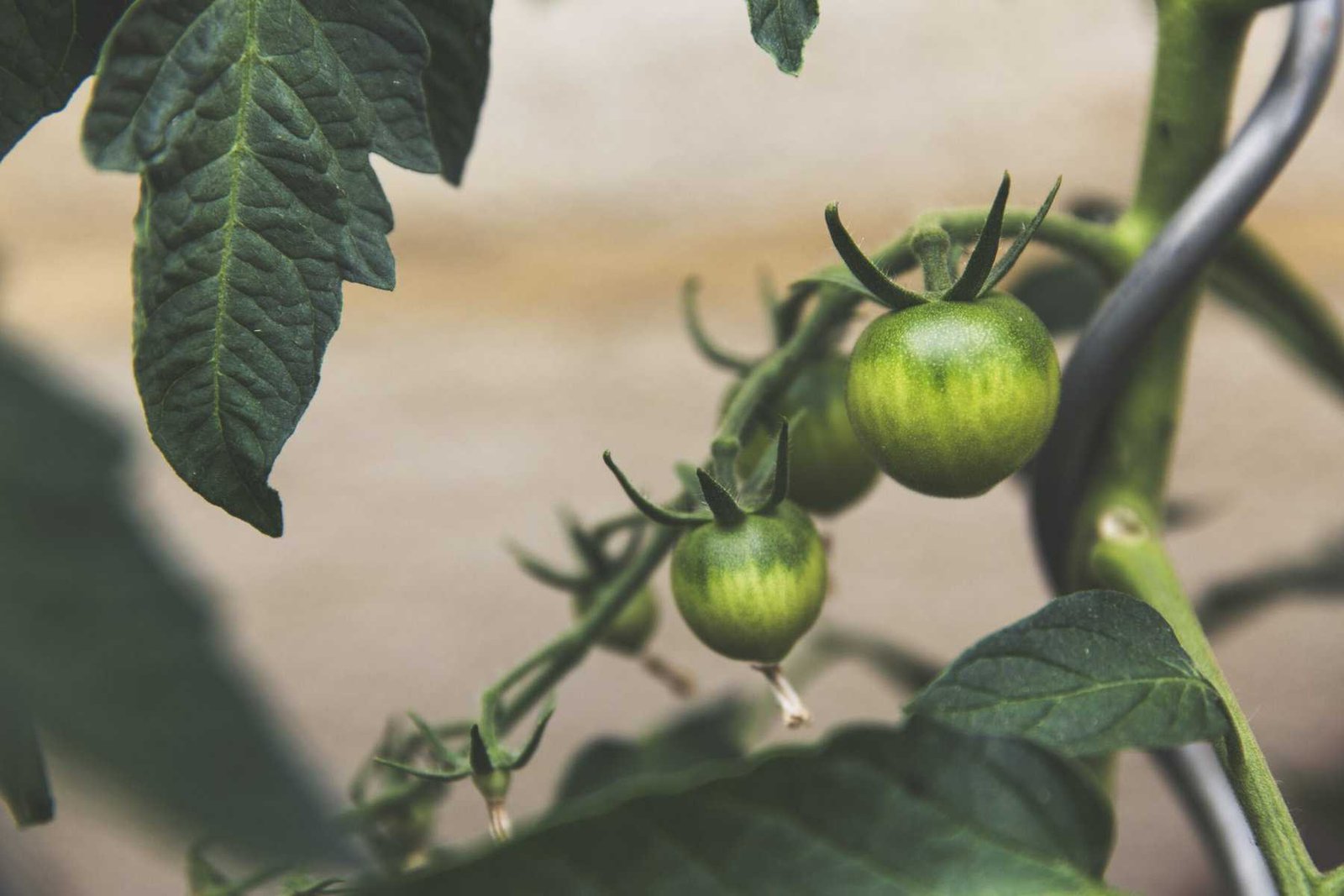
Tips for Maintaining Mulch around Nopal
Water Plants Adequately
Proper watering is crucial for maintaining the health and efficiency of mulch around Nopal plants. While organic mulch helps retain soil moisture, it is essential to monitor the moisture levels and provide adequate hydration as needed. Avoid overwatering, as excessive moisture can lead to root rot or fungal diseases. Regularly check the soil moisture and adjust your watering routine accordingly.
Inspect for Weed Breakthrough Regularly
Despite the effectiveness of organic mulch, it is essential to inspect the mulched area regularly for any signs of weed breakthrough. Weed seeds can still find their way into the designated area, especially if blown by the wind or transported by birds. Promptly remove any weeds that manage to germinate to prevent them from competing with your Nopal plants for resources.
Replenish Mulch as Needed
Over time, organic mulch may break down or decompose, diminishing its weed control capabilities. It is important to replenish the mulch layer periodically to maintain its effectiveness. Add a fresh layer of mulch to ensure weed suppression and moisture retention, particularly around Nopal plants. Regularly replenishing the mulch helps create an optimal environment for your Nopal plants and reduces the need for additional weed control measures.
Monitor the Mulch Layer Thickness
As organic mulch decomposes, its thickness may reduce over time. It is important to monitor the mulch layer thickness and ensure it remains within the recommended range of 2-4 inches. If the mulch layer becomes too thin, weed growth may become more prevalent, compromising the weed control efforts. Maintaining the appropriate mulch layer thickness helps maximize the benefits of organic mulch for weed control around Nopal plants.
Potential Challenges Using Organic Mulch for Weed Control around Nopal
Seed Germination by Birds or Wind
While organic mulch significantly reduces weed growth, there is still a possibility of new weed seeds being introduced into the area by birds or wind. Birds may drop seeds or bring in weed seeds attached to their feathers, while wind can carry weed seeds from neighboring areas. Regular inspection and prompt removal of any newly germinated weeds can effectively address this challenge.
Nutrient Competition with Nopal Plants
Some types of organic mulch, particularly fresh grass clippings or uncomposted materials, may temporarily compete with Nopal plants for nutrients. These mulches require nitrogen for decomposition, which may result in a temporary depletion of this essential nutrient in the soil. To mitigate nutrient competition, opt for mature compost or well-decomposed mulches that have balanced nutrient content.
Potential Pest Habitat
Organic mulch can provide a favorable environment for certain pests, such as slugs, snails, or rodents, which may damage Nopal plants. These pests may find shelter or food sources within the mulch layer, compromising the health and growth of your Nopal plants. Regularly inspect the mulched area for any signs of pest activity and take appropriate measures to address the problem if necessary.
Effect on Nopal’s Soil pH
Certain types of organic mulch, such as pine needles or oak leaves, can slightly lower the soil pH over time due to their natural acidity. While this may be beneficial for Nopal plants that prefer a slightly acidic to neutral pH, it is important to monitor the soil pH levels. If the pH becomes excessively acidic, amendments may be necessary to maintain the optimal growing conditions for your Nopal plants.

Combining Organic Mulch with Other Weed Control Methods
Hand Weeding
Combining organic mulch with regular hand weeding can provide comprehensive weed control around Nopal plants. While organic mulch suppresses weed growth, occasional manual removal of any persistent or large weeds can help maintain a clean and tidy appearance. Hand weeding allows you to target specific weeds and minimize the competition between weeds and Nopal plants.
Mulch Barriers or Edging
To further enhance weed control, consider using mulch barriers or edging materials around the designated area. These physical barriers create a clear boundary between the mulched area and the surrounding soil, preventing weed encroachment from adjacent areas. Mulch barriers or edging materials can be made of plastic, metal, or natural materials such as stones. They provide an extra layer of protection against weed growth and add aesthetic appeal to your Nopal garden.
Cover Crops
Integrating cover crops into your Nopal garden can be an effective weed control method when combined with organic mulch. Cover crops, such as clover or rye grass, act as living mulch, suppressing weed growth and providing additional soil protection. These crops also help improve soil fertility by adding organic matter when they are turned into the soil. Combining cover crops with organic mulch creates a multi-layered approach to weed control and enhances the overall health of your Nopal plants.
Mulch with Pre-emergent Herbicides
If organic mulch alone is not providing sufficient weed control, you may consider combining it with pre-emergent herbicides. Pre-emergent herbicides are applied to the soil before weed seeds germinate and can effectively prevent weed growth. However, it is important to use herbicides responsibly, following the manufacturer’s instructions and precautions. Combining mulch with pre-emergent herbicides can provide an extra layer of weed control, reducing the need for manual weeding and ensuring the success of your Nopal plants.
Conclusion
Organic mulch can be a highly beneficial and sustainable option for weed control around Nopal plants. It prevents weed growth, conserves soil moisture, improves soil fertility, and reduces the need for chemical weed control. By understanding the specific needs and requirements of Nopal plants, such as their growth habits and preferred soil conditions, you can choose the right type of organic mulch. Proper preparation of the area, appropriate application of the mulch, and regular maintenance ensure the effectiveness and longevity of the weed control measures. Consider combining organic mulch with other weed control methods for comprehensive protection. By utilizing organic mulch for weed control around Nopal plants, you can create a healthy and thriving garden while minimizing the impact on the environment.
